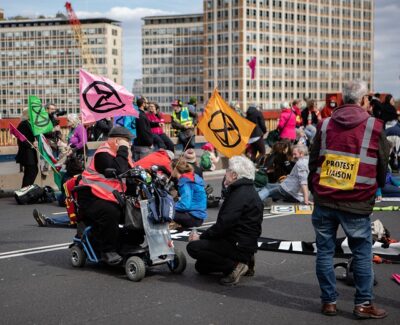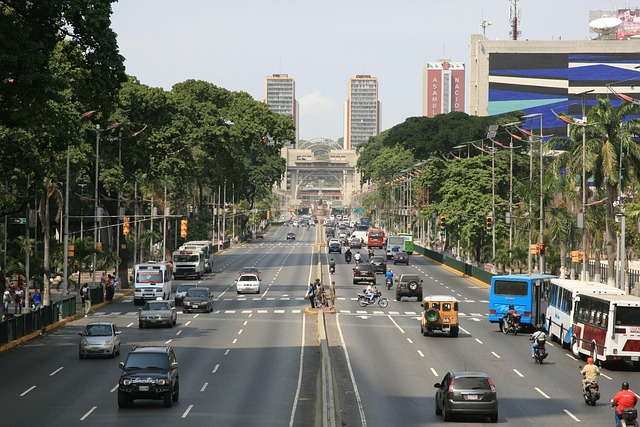 I and many others have written about the magical year of 1968, which is symbolised by the youth rebellion, the rise of the left-wing movement, cultural change, the quest for equality and, above all, the emergence of a new elite.
I and many others have written about the magical year of 1968, which is symbolised by the youth rebellion, the rise of the left-wing movement, cultural change, the quest for equality and, above all, the emergence of a new elite.
It is often said that the left marched into academia, media and institutions. They took over most of it, if we are honest, except possibly parts of the business world and the military.
So how could a labour movement suddenly turn itself into a new elite and take over a society in a relatively short time?
The answer to this question is that it was not a labour movement. The young people who set the tone in 1968 were university students from the middle and upper classes. The Marxism preached in the late 1960s was different from that preached 100 or 50 years earlier. Perhaps this can be explained by the fact that the 1968 uprising was originally a peace and freedom movement, which the left tried to hijack, but to do so required many concessions to the original ideas.
It was simply the children of the old elite taking over in a rebellious manner.
Much was about the spirit of the times; they were radical instead of conservative, believing more in individualism and free will – instead of duty and loyalty to family, culture and old values. At the same time, there was criticism of all the new things created by the previous generation, modernism and the industrialised society. Instead, we had a green wave, and people started to be passionate about old charming architecture, old city centres with cobblestones instead of suburbs and motorways.
But because activists were often highly educated city dwellers, they had little contact with forests, lakes, seas, fields and meadows. Their image of nature was often idealised and romantic. They understood neither farmers nor labourers. Instead, the so called white trash who lived in the countryside were often looked down upon and allowed to be mocked and belittled.
A society is never more than its elite. The ordinary people mostly want to be left alone. It is the elite who create, develop and build. And I don’t mean to be demeaning here, most people don’t want to speak in front of large groups, to be in charge and to take great responsibility. Not seeking membership in the elite club is not a bad thing, most people are not members and will never be.
The new elite became more out of touch with the world than the old one. The activists’ parents were engineers, doctors and teachers. They believed in order, facts and truth. Whereas the new elite was critical, relativistic and intuitive. Qualities that probably do not suit those who are supposed to be social leaders and initiators. They saw no wars to win, borders to cross, adventures to seek. When the external seemed limited, they sought the inner journey instead.
Since there were no longer any fixed truths in life, the group and group thinking became essential. All activists were constantly forced to take the temperature of each other to know what was going on at the moment. They became extremely sensitive to changes in the politically correct group manual, and could quickly reorganise themselves in response to new messages and ideas, as long as it came from the approved group.
During the 1980s, which coincided with the family formation and child rearing of the 68 generation, a right-wing wave took over the world, led by Thatcher and Reagan. Revolution and social upheaval took a break.
But all these ideas came back in a more decadent form in the 21st century. The elite are no longer fighting for homosexuals and minorities to have equal rights before the law, but they are fighting for other individuals to accept them on a personal level. We also have activists who want to perform gender reassignment surgery on minors. And an extremely lenient attitude when minorities burn, steal and riot. The destruction of works of art and traffic sabotage in the name of carbon dioxide. We’ve also seen campaigns claiming that women never lie in allegations of abuse, and calls for courts to adapt and automatically rule in women’s favour. And heavy radical activism and influence from business, in the form of advertising campaigns, design and branding. As well as politicians and the media, who also often support the activists.
We have gone from demanding justice before the law – then subsidising and quotas – to finally asking for special legislation, individual acceptans of cross-border individuals and parallel societies.
What is happening now is really a parody of the 1968 movement, in an exaggerated and degenerate form, but basically a similar quest for justice. And this new struggle for justice has taken on almost religious undertones. The most beautiful thing you can do is to support gays, refugees and misfits. But preferably without meeting them personally; instead, it’s goodness from a distance that counts, mostly as an attitude and a healing act that may provide some kind of post-structural salvation. All approved and paid for by fund managers and big business, who nevertheless thirst for virtue points and advantages on the new playing field.







